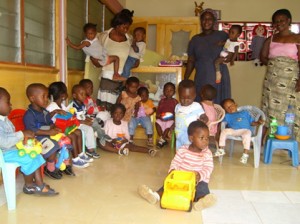Child poverty level in Ghana higher than national average – Report
 The Ghana Poverty and Inequality report says child poverty is higher than the overall poverty rate and greater among farming households in rural communities without social amenities.
The Ghana Poverty and Inequality report says child poverty is higher than the overall poverty rate and greater among farming households in rural communities without social amenities.
It said: “the proportion of children living in poverty has increased by around 25 per cent in the last few decades, denying several rural children access to good diet, education, health services and drinkable water.”
Andy Mckay, an Economics Professor of the department of University of Sussex, in England, said “we estimate that in Ghana, a child is almost 40 per cent more likely to live in poverty than an adult,”
Prof Mckay was presenting the 2016 Ghana Poverty and Inequality report at a public lecture organised by UNICEF.
The address highlighted on issues concerning poverty and inequality in Ghana over 20 years.
“This inequality has risen substantially from the 1990s when children were only 15 per cent more likely to be poorer than adults,” Prof McKay added.
“It is always the question of the extent to which growth translates into better living conditions for ordinary people, so they feel growth in their pockets,” he said.
The report said Ghana’s economy has recorded steady positive growth and substantial transformation for the past 30 years
The country experienced stable increasing growth of over seven per cent annually since 2005 and its per capita growth has remained relatively high following the attainment of middle income status in 2010 and discovery of offshore oil reserves.
The three regions of the north – Northern, Upper East and Upper West have the highest levels of poverty, even though they have the most social and economic interventions in recent years compared to other regions.
The Upper West, the report said, has the highest level of inequality and largest increase in inequality since the 1990s, while the lowest level of inequality is found in the Greater Accra Region.
The report said since the 1990s, the Northern Region has seen the smallest progress in poverty reduction, which raises major concerns for policymakers given that the Region has the largest number of poor people compared to other regions – 1.3 million.
Last week, the United Kingdom announced a £14.8 million investment plan to implement pro-poor programmes in Ghana intended to galvanise rural smallholder farmers and small scale entrepreneurs in the savannah ecological zone where poverty is endemic.
Source: GNA
